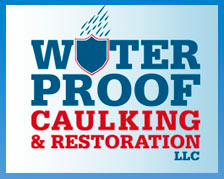When it comes to home maintenance, the most visible problems tend to get the most attention, like peeling paint or broken tiles. However, there are some problems that are far easier to address before they become noticeable, and water damage is at the top of the list. If your home has never been waterproofed, there is a chance that water could make its way inside and cause significant damage. While this can be very obvious in the case of flooding after heavy rains, some water damage is far more insidious, with small amounts of moisture making their way into poorly sealed areas and slowly destroying everything it comes into contact with long before you realize it is even happening. Here are some places that you need waterproofing in a house:
Why Waterproofing Your House Is Important
Waterproofing your house can be thought of as a type of insurance against future damage. Failure to properly waterproof your house can lead to a slew of consequences, including rot, weakening of the structure and eventual collapse. Although there is a cost involved in waterproofing, it can really pay off in terms of preventing very expensive repairs from being needed.
Waterproofing your house can also increase its resale value and ensure that the house will stand the test of time. It can also lead to a reduction in respiratory problems for your home’s inhabitants and make the inside environment significantly more comfortable.
It is also a good way to protect your most important belongings. Whether it is irreplaceable photos, valuable collections in your basement or expensive kitchen appliances that you need to use on a daily basis, water damage can be devastating.
Areas That Need Waterproofing
Waterproofing is best done when the home is being built or renovated, but there are lots of approaches that professional waterproofers can use to seal your home regardless of its age or condition.
Any area of the home that will be exposed to moisture should be waterproofed. Some of the areas that deserve the most attention include basements, bathrooms, balconies, the roof and the kitchen.
Bathrooms
Bathrooms require extensive waterproofing because they come into direct contact with water on a daily basis. To prevent the buildup of excess moisture and leaks, it is essential to waterproof your bathroom’s walls, floor and ceiling. The area behind the shower is particularly vulnerable, so it should be made using wallboard rated for moist environments and then sealed.
Tile is a great choice for a bathroom floor because it works well at keeping water from seeping through to floorboards, but the grout needs to be sealed each year to avoid water getting into and behind it. Finally, the ceilings should be covered in waterproof paint, while a vent can help bring moist air out of the bathroom.
Balconies
Because balconies are often exposed to elements such as rain, snow and wind directly, they are highly susceptible to seepage. Waterproofing is especially important if your balcony is wood framed, although concrete structures can also benefit from an extra layer of protection against cracks, mold, mildew and the sun’s UV rays. Waterproofing a balcony is a job that is best left to the experts.
Roofs
The roof of your home is one of the most important places to waterproof because it must stand up to the greatest exposure to wind and wet weather conditions such as rain and snow. If water makes its way through your roof, it can end up seeping through the entire home and causing extensive damage that can be very costly to repair.
Many people think of their roof as only involving the shingles, as they are the most visible part, but shingles alone are just one part of the equation and will not keep water out on their own. The roofing underlayment beneath the shingles is also important, and this is where waterproofing protection should take place.
Kitchens
In the kitchen, waterproofing the counters, cabinets and backsplashes near the stove and sink can make a big difference. Cracked countertops can cause water to seep and accumulate inside, while the cabinet under the sink is a prime place for mold to grow. Kitchen waterproofing is often carried out in the form of surface treatments and sealing joints.
Basements
Basements are susceptible to dampness, condensation, mold and flooding, and waterproofing is essential in this area of the home. Because your basement can be thought of as being part of the home’s foundation, it deserves extra attention to avoid settling and cracking from water damage. This is particularly important if you store valuable possessions in your basement.
Waterproofing Your House With The Experts
Enjoy the peace of mind provided by waterproofing by enlisting the help of professional waterproofing services to protect your investment in your home. Get in touch with the experts at Waterproof Caulking & Restoration to find out how their affordable and effective waterproofing services can keep your home safe and dry.
